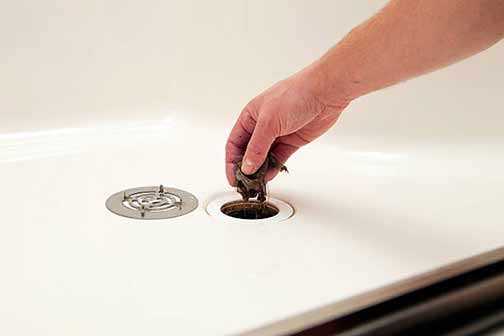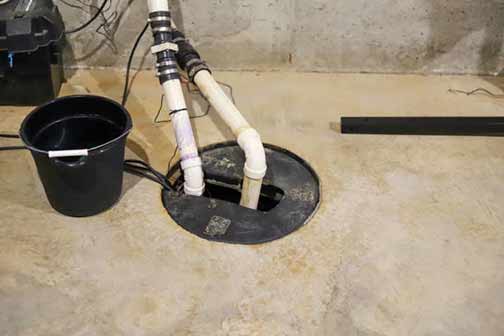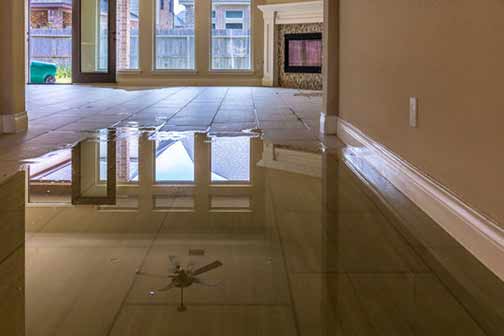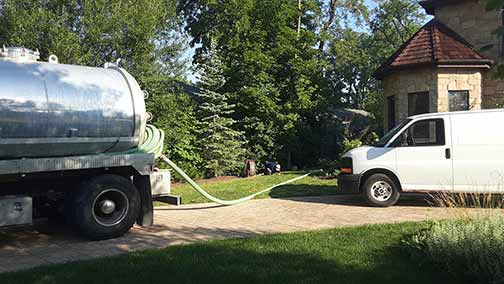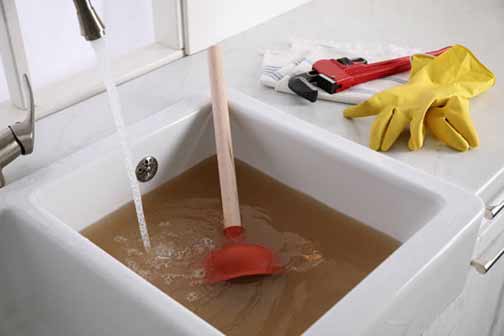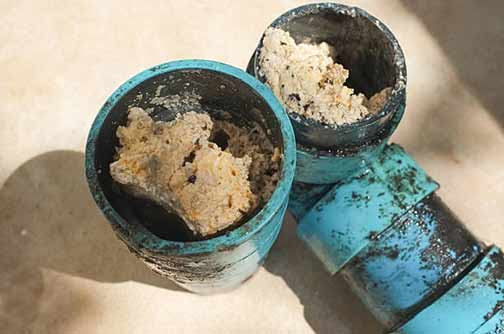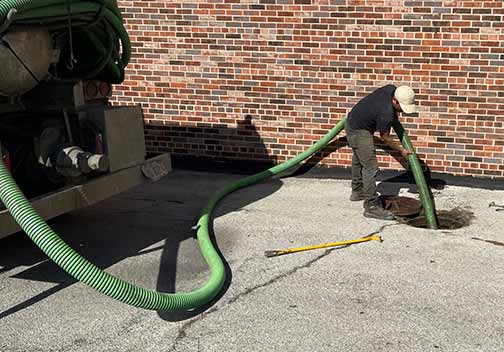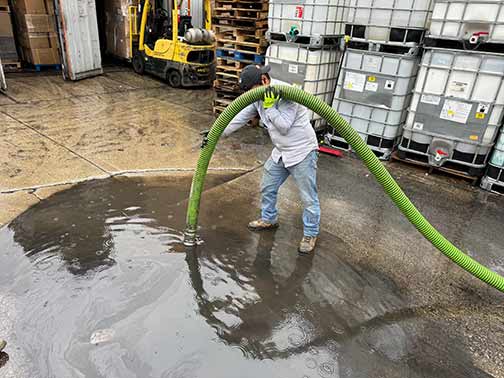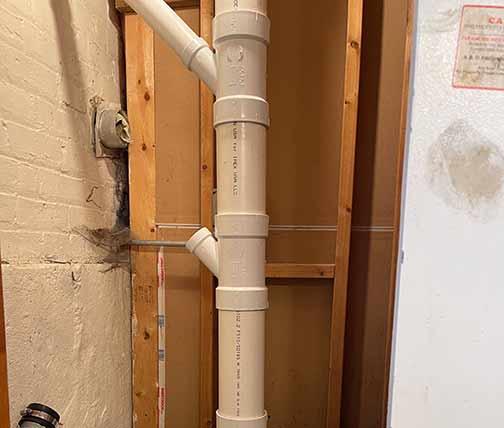
Water leaks are a common occurrence in many homes and can lead to numerous issues if left unaddressed. While some leaks are easily noticeable and can be fixed promptly, others can be hidden beneath your home, causing serious damage over time. Below we will explore the potential consequences of a water leak under your home and why it is crucial to take immediate action to mitigate any damage.
The Dangers of an Undetected Water Leak
When a water leak goes unnoticed under your home, it can result in a range of problems that affect both the structural integrity of your house and the health of its occupants. Here are some of the most significant dangers you may face:
Foundation Damage
A water leak beneath your home can compromise its foundation, which is designed to support the entire structure. When water accumulates around the foundation, it can weaken the soil and cause the foundation to shift or even crack. Over time, this can lead to severe structural issues, including sagging floors, cracks in walls, and doors that no longer close properly.
Mold and Mildew Growth
Excess moisture resulting from a water leak is the perfect breeding ground for mold and mildew. Mold spores are known to cause various health problems, including respiratory issues, allergies, and infections. When mold growth occurs under your home, it can release spores into the air you breathe, posing a significant risk to your family’s well-being.
Pest Infestation
Water leaks can attract pests, such as termites, cockroaches, and rodents, seeking a water source. These pests can find their way into your home through cracks or openings caused by the water damage. Once inside, they can cause further harm to your property and create an unsanitary living environment. Preventing water leaks can help minimize the risk of a pest infestation.
Increased Utility Bills
A water leak under your home can lead to a significant increase in your water bills. Even a small, undetected leak can result in a substantial loss of water over time. By promptly repairing leaks, you can avoid the unnecessary expenses associated with wasted water.
Structural Decay
Continuous exposure to water can cause the wooden components of your home’s structure to decay. This decay weakens the overall structure, making it susceptible to further damage, including rotting, warping, and deterioration. Repairing water leaks and addressing any resulting damage promptly is crucial to preserving the integrity of your home.

An unexplained increase in your water bills can be a strong indication of a hidden water leak.
How to Detect a Water Leak Under Your Home
Identifying a water leak under your home can be challenging, as most of the plumbing system is hidden from view. However, some warning signs can indicate the presence of a water leak. Here are a few common indicators:
Unpleasant Odors
If you notice a persistent musty or earthy smell in your home, it could be a sign of mold growth resulting from a water leak. Mold has a distinct odor, and it is essential to identify and address the source promptly.
Wet or Damp Areas
Frequent water leaks can lead to the formation of wet or damp spots on your walls, ceilings, or floors. These areas may appear discolored or feel moist to the touch. If you come across such spots, it is crucial to investigate further to identify the cause.
Decreased Water Pressure
A sudden decrease in water pressure throughout your home can indicate a hidden water leak. If you notice that your faucets or showerheads are not functioning as efficiently as before, it is advisable to have your plumbing system inspected.
Abnormally High Water Bills
An unexplained increase in your water bills can be a strong indication of a hidden water leak. If your usage habits remain the same but your bills are significantly higher, it is essential to investigate the possibility of a leak under your home.
Strange Noises
If you hear the sound of running water or dripping when no faucets or appliances are in use, it could be a sign of an underground leak. Pay attention to any unusual sounds coming from the walls, floors, or pipes as they may indicate a hidden water leak.
Taking Action: Steps to Address a Water Leak Under Your Home
Once you suspect a water leak under your home, it is crucial to take immediate action to prevent further damage and mitigate the potential consequences. Here are the steps you should follow:
Locate the Source
The first step is to identify the exact location of the water leak. This may require professional assistance, as underground leaks can be challenging to detect without specialized equipment. A certified plumber can perform a thorough inspection of your plumbing system and pinpoint the source of the underground leak.
Shut Off the Water Supply
If you have confirmed the presence of a water leak, it is important to shut off the water supply to your home. Locate the main water valve and turn it off to prevent further water damage. This will also help you minimize your water bills until the leak is fixed.
Contact a Professional Plumber
Fixing a water leak under your home requires the expertise of a professional plumber. Attempting to address the issue yourself may lead to further damage or ineffective repairs. Contact a reputable plumber with experience in detecting and repairing underground leaks.
Assess and Repair the Damage
Once the water leak is fixed, it is essential to assess the extent of the damage caused by the leak. Depending on the severity, you may need to repair or replace affected materials, such as flooring, insulation, drywall, or wooden structures. Failure to address the damage promptly can lead to further issues down the line.
Take Preventive Measures
To prevent future water leaks under your home, there are some preventive measures you can take, including:
- Regularly inspecting your plumbing system for signs of leaks
- Maintaining proper drainage around your home to redirect water away from the foundation
- Monitoring your water bills for sudden increases
- Insulating exposed pipes to prevent freezing and bursting
- Having your plumbing system inspected and maintained regularly by a professional
By implementing these preventive measures, you can reduce the risk of encountering water leaks and minimize potential damage.
In Conclusion
Having a water leak under your home can have serious repercussions, ranging from structural damage to health issues. It is essential to keep an eye out for signs of a water leak and take immediate action if you suspect its presence. By promptly addressing a water leak and repairing broken water lines, you can protect your home, ensure the well-being of your family, and avoid unnecessary expenses in the long run.
